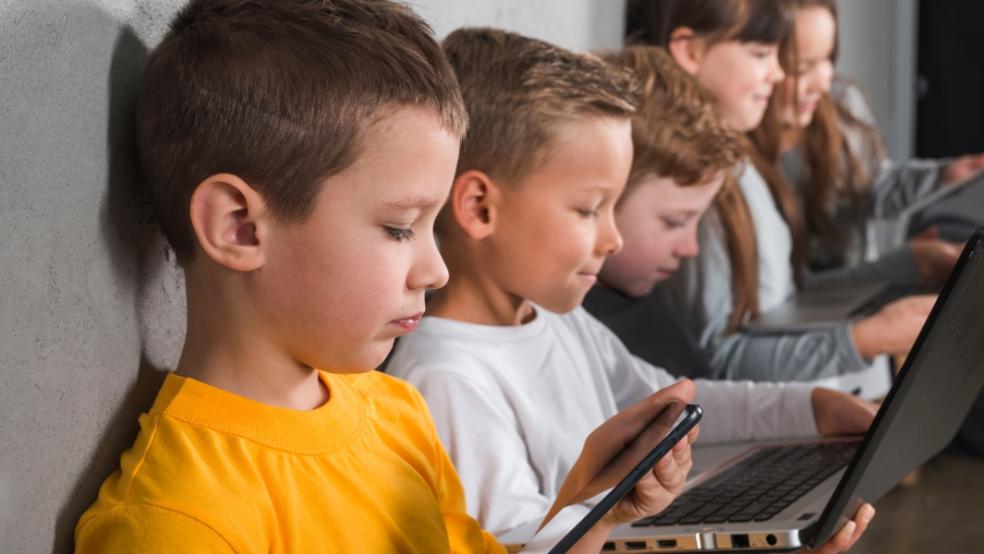
NAVIGATING PARENTHOOD IN THE AGE OF DIGITAL ADDICTION
We live in a world reliant on technology. Unfortunately, a very real side effect of this can be overuse, and even digital addiction - a colloquial term used to describe a problematic relationship with technology involving impulsive and obsessive use (including smart devices, the internet and video games).
For many of us it may feel normal to use one or even multiple digital devices throughout the day – but it is important that parents are cautious of the impact excessive use can have on their children.
I recently released a study on internet addiction in the family setting, developed with Qatar Foundation and its member institutes Doha International Family Institute, the World Innovation Summit for Education, the World Innovation Summit for Health, and Hamad Bin Khalifa University, which revealed digital addiction in parents can lead to the same in their children and that parental role modelling can influence a child’s technology use.
Parents who participated in the study expressed serious concerns over the detrimental effect of digital addiction on both the child and the family dynamic. Most parents found technology overuse negatively affects the behavior of adolescents and can cause psychological harm – which can manifest as stress, depression and loneliness. At the same time, parents seem to be struggling to find the right solutions to tackle the problem.
How do we spot the signs of digital addiction?
Although signs of digital addiction in children can be difficult to spot, parents can watch out for its impact and harm by monitoring:
Noticeable impact on social life and family responsibilities
As a parent, it is important to be vigilant of any noticeable shifts in the family dynamic, which can be attributed to your child starting to use technology excessively. This may take the form of your child becoming socially disconnected and less interested in spending time as a family, or they may start displaying signs of addiction through increased conflict and arguments arising with other family members. Children can also use the internet as a form of escapism, such as from problems experienced at school or because of limited emotional bonding at home.
Health implications
Digital addiction can have physical health implications. Although the impact on an adolescent’s health can vary, many children experiencing digital addiction showed similar symptoms, including fatigue, stress, anxiety, unhealthy eating habits, isolation, eyesight problems, neck, shoulder and backbone pain. Often, children find it difficult to stop using technology, or commit to planned technology use, despite the impact on their health.
Learning is interrupted
Finally, many of the children we studied found that their learning was interrupted by their addiction, with poor academic performance noted.
Children may also create alternative realities online and it can be easy for children who have been left alone to procrastinate and immerse themselves in online activities. It is also important to be aware another sign of addiction is that children may conceal their use of technology from their peers and parents.
So, how can parents handle digital addiction in children?
In our research, some parents agreed that giving their children specific guidelines and time-limits to device usage helped tackle digital addiction, whilst other parents felt that giving children the responsibility to manage their own device usage was more effective. For example, giving children the option to choose the hours in which they use devices and how they divide the time according to their preference made them feel more accountable for their own use and more likely to take responsible action.
The important thing for parents to do is to have open communication with their children. Developing an honest and transparent relationship, in which children feel safe talking to their parents about issues such as this, will be vital in tackling digital addiction. By creating a sense of trust, children feel more supported and will start to cooperate. Another important step is rewarding children when they have started to work with their parents to address their addiction.
As children were found to imitate a parent’s digital usage, it is also important for parents to be role models and agree to limit-setting themselves. If parents can also commit to change, regulations set out for children will become much more credible.
Technology is an essential part of living in our world but it is important, especially among the younger generation, to establish healthy boundaries with our devices and live balanced lives. Overcoming digital addiction with your child will not necessarily be easy, but by communicating constantly and implementing small, consistent changes, families can overcome it.
Article Credit - Dr Raian Ali Dr Raian Ali is a Professor at the College of Science and Engineering, Hamad Bin Khalifa University (HBKU), Qatar, and Visiting Professor in Computing in the Department of Computing and Informatics, Bournemouth University, UK.Related Articles for you
INTERNET MATTERS LAUNCHES NEW INDEX TO MEASURE UK CHILDREN’S ‘DIGITAL WELLBEING’
Digital Detoxing: How to Break Up with Technologies as a Family














